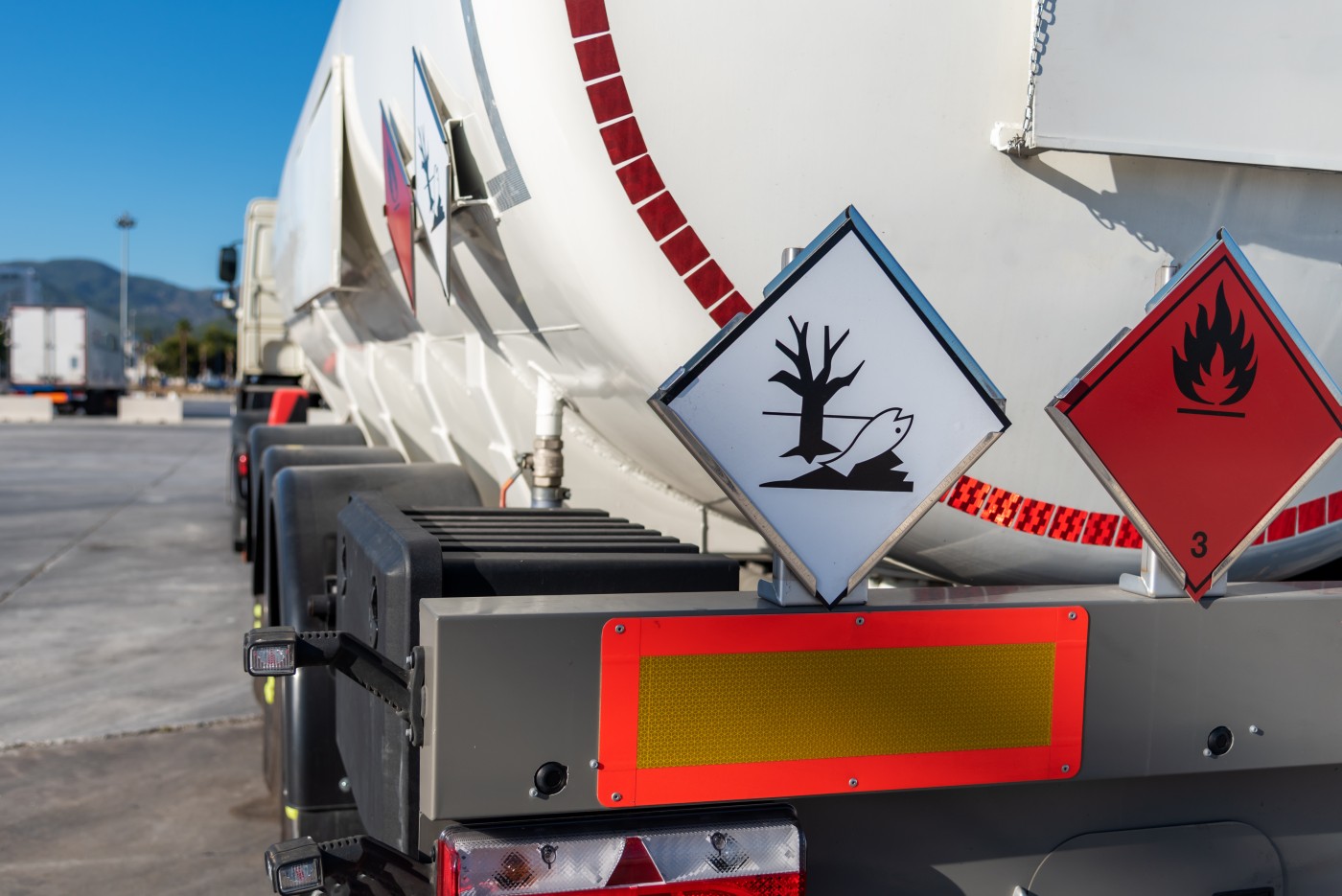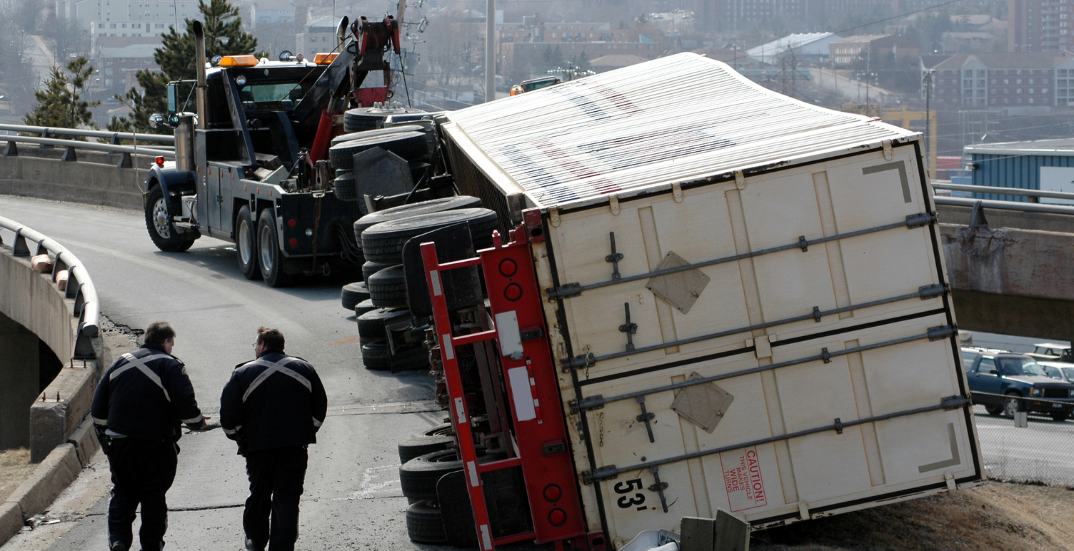According to the Pipeline and Hazardous Materials Safety Administration (PHMSA), 20,476 hazardous materials incidents were reported in 2022, with transportation-related incidents accounting for a significant portion. These trucks carry everything from flammable liquids and corrosive acids to radioactive materials and toxic gases that can cause explosions, chemical burns, or long-term health problems for everyone nearby.
Understanding your legal rights after a hazardous materials in truck accident becomes critical because these cases involve multiple liable parties and complex federal regulations. Trucking companies, chemical manufacturers, and loading crews must all adhere to strict Department of Transportation guidelines; however, violations occur regularly due to inadequate training, faulty equipment, or pressure to meet delivery deadlines.
When someone cuts corners with dangerous cargo, the results can devastate entire neighborhoods through fires, toxic spills, or evacuation orders. Knowing how to protect yourself legally means securing compensation not just for immediate injuries, but also for potential long-term health effects and property contamination.

Key Takeaways
- Hazmat truck accidents have surged 155% over the past decade, causing 52 deaths and 160 injuries nationwide.
- Federal regulations require specialized driver training, proper vehicle equipment, and designated routing to avoid populated areas.
- Common causes include driver fatigue, inadequate training, poor vehicle maintenance, and violations of mandated hazmat corridors.
- Chemical exposure can cause severe burns, respiratory damage, and long-term environmental contamination affecting entire communities.
- Legal cases involve complex federal oversight from FMCSA, EPA, and DOT, with multi-party liability determinations.
The Growing Danger of Hazardous Materials Transportation
Hazardous materials in truck accidents pose threats far greater than those in typical collisions on Florida’s highways. Unlike standard crashes, hazardous materials in truck accidents trigger federal investigations, environmental cleanup protocols, and public health assessments that complicate your claim. Trucking companies face stricter liability under Department of Transportation regulations, but proving violations requires attorneys who understand both transportation law and chemical safety standards. Suppose you’ve been affected by a hazmat truck crash. In that case, experienced truck accident lawyers in Ruskin can navigate these complex regulations to hold negligent parties accountable and secure the compensation you deserve.
Understanding Federal Safety Regulations for Hazmat Trucks
The Federal Motor Carrier Safety Administration enforces stringent regulations governing every aspect of hazardous materials transportation, from driver qualifications to vehicle specifications. You’ll find that drivers must complete specialized hazmat training and obtain proper endorsements on their commercial licenses. These compliance standards require rigorous background checks, security threat assessments, and ongoing education.
When trucking companies skip these requirements to save money or meet deadlines, they risk chemical spills, fires, and toxic exposure across entire neighborhoods. Filing a truck accident lawsuit involving hazardous materials in truck accidents means proving Department of Transportation violations through driver files, inspection reports, and shipping documents. These regulatory breaches strengthen your case because they demonstrate clear negligence beyond simple driver error, often leading to larger settlements when companies deliberately cut corners on public safety.
4 Common Causes of Hazardous Materials in Truck Accidents
Driver Error and Fatigue
Driver mistakes remain the leading cause of hazardous materials in truck accidents across Florida highways. Truckers face intense pressure to meet deadlines, which often prompts them to exceed legal driving hours or skip mandatory rest breaks, impairing their judgment and slowing their reaction times. When exhausted drivers lose control or fail to brake properly while hauling toxic cargo, the consequences escalate beyond typical crashes because chemical spills can ignite, explode, or release poisonous fumes, endangering entire communities.
Improper Loading and Securing of Cargo
Incorrectly loaded hazardous materials create dangerous instability that causes containers to shift, leak, or rupture during transport. Companies often rush loading procedures or use undertrained workers to cut costs, ignoring strict protocols for weight distribution and securing methods. When chemical containers aren’t properly balanced or restrained, even routine lane changes can cause cargo to shift violently, puncturing tanks or tipping trailers and releasing dangerous substances onto roadways.
Equipment Failure and Inadequate Maintenance
Mechanical breakdowns trigger hazardous materials in truck accidents when companies defer repairs or skip required inspections to save money. Hazmat trucks require specialized equipment, including reinforced tanks, emergency shutoff valves, and leak detection systems, which necessitate regular maintenance and inspection. Worn brakes, corroded tanks, or faulty coupling systems can cause catastrophic failures at highway speeds, especially when carrying volatile chemicals through populated areas where emergency response becomes difficult.
Regulatory Violations and Inadequate Training
Companies that skimp on proper hazmat training create conditions for disaster when drivers don’t understand the materials they’re hauling. Federal law requires specific certifications and ongoing education on chemical properties and emergency procedures; yet, some employers provide minimal training or falsify compliance records. Drivers lacking this expertise may miss warning signs of leaks, respond incorrectly during emergencies, or violate routing restrictions, turning preventable incidents into full-scale catastrophes.
Complex Legal Challenges in Hazmat Accident Cases
Cases involving hazardous materials in truck accidents present layers of legal complexity that standard collision claims never encounter:
- Federal FMCSA regulations govern driver certification, vehicle maintenance, and hazmat route restrictions.
- The Environmental Protection Agency’s involvement assesses contamination and assigns cleanup liability for chemical spills.
- Department of Transportation investigation protocols often delay access to critical evidence and shipping records.
- Multi-party liability determination spreads responsibility across carriers, shippers, loaders, and equipment manufacturers.
These overlapping jurisdictions and competing investigations require attorneys who understand both transportation law and environmental regulations to navigate hazardous materials in truck accidents successfully and secure maximum compensation for your injuries.
5 Essential Steps to Take After Hazardous Materials in Truck Accidents in Florida

Evacuate to a Safe Distance Immediately
The moment you’re involved in hazardous materials in a truck accident, move yourself and passengers away from the crash scene quickly. Get upwind and uphill from the truck to avoid toxic fumes or spreading chemical leaks that can cause burns, respiratory damage, or explosions. Call 911 from a safe location and specifically mention the hazmat truck so emergency responders arrive with proper protective equipment.
Seek Immediate Medical Evaluation
Get medical attention right away, even if you feel fine, because chemical exposure often causes delayed symptoms appearing hours or days later. Inform medical staff that hazardous materials may have been involved in the truck accident, so they can run appropriate tests for chemical inhalation, skin contact, or contamination. This medical documentation establishes a connection between the accident and any subsequent health problems, which becomes critical evidence for your claim.
Document Everything About the Scene
If safe from a distance, photograph the truck’s hazmat placards, which display codes identifying the chemicals transported and any visible damage or leaks. Write down the time, location, what you saw and smelled, and witness contact information while details remain fresh. Preserve contaminated clothing in sealed plastic bags, as these items may need testing to prove your exposure levels.
Report the Incident to Authorities
File an official accident report with Florida Highway Patrol and request copies of all documentation, including police reports and Department of Transportation records about the cargo. These official records establish facts and often reveal regulatory violations or inspection failures that strengthen your case. Never give recorded statements to insurance companies or sign documents without legal counsel, as adjusters work to minimize payouts.
Contact Experienced Hazmat Truck Accident Attorneys
Reach out to lawyers specializing in hazardous materials in truck accidents immediately, as critical evidence like black box data and shipping manifests can disappear quickly. Specialized attorneys preserve this evidence before companies destroy it and identify all liable parties.
Conclusion: Protecting Your Rights After Hazardous Materials in Truck Accidents in Florida
You deserve compensation that covers not just your immediate injuries, but also the ongoing medical monitoring, property decontamination, and potential relocation costs that hazardous materials in truck accidents often require. Insurance companies will pressure you to settle quickly before the full extent of chemical exposure becomes clear, hoping you’ll accept far less than your claim is worth. Don’t let them take advantage of you during this vulnerable time when you’re focused on your health and your family’s safety.
At Calandro Law, we bring the resources of a large national firm to our Ruskin community, standing up to corporate trucking giants who put profits over public safety. We handle all the legal complexities while you focus on recovery, and we only get paid when we win your case. Our team knows how to prove negligence in hazardous materials in truck accidents and secure every dollar you’re entitled to for your suffering.
Contact us today for a complimentary consultation, and let us advocate for the justice your family deserves.



